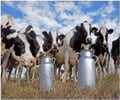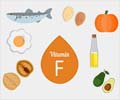Effects of pasteurization
Nutritional - Although the process of pasteurization has beneficial effects, it has some nutritional drawbacks as well. Some research findings have been cited below to further elucidate the point.
The relation of the vitamins to obstetrics, American Journal of Obstetrics and Gynecology, 29.5:759. May, 1935.
"Pasteurization of milk destroys about 38% of the B complex according to Dutcher and his associates..." -Lewis, L.R.
The relation of the vitamins to obstetrics, American Journal of Obstetrics and Gynecology, 29.5:759. May, 1935.
As mentioned above along with the loss of heat labile water soluble vitamins, there is the slight denaturation of whey proteins. Mineral precipitation is not appreciable.
On the flip side, there is protection form microorganisms and production of a fine curdon digestion.
Physical - Pasteurization does not alter the flavour or taste of milk The flavouring compounds already present in milk are also not destroyed. There is no colour or smell alteration too.
Microbial - The main aim of pasteurization was to eliminate any disease producing organisms, reduce the total bacterial count and improve the keeping quality. The process destroys all pathogenic bacteria but vegetative organism and spores still remain in the suspension. Thus pasteurization is not an alternative to sterilization. 99% of bacteria, fungi, yeasts and moulds are killed.
Enzymatic - Denaturation of alkaline phosphatase, which is also used as an indicator to the completion of pasteurization, is deactivated. It also reduces the lipase activity.









